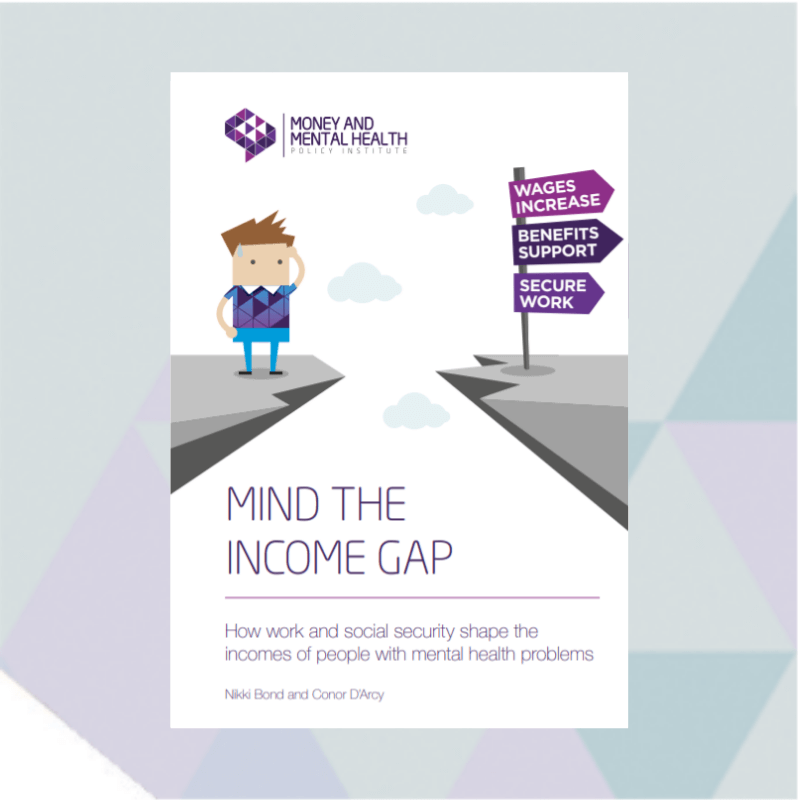Nikki Bond, Senior Research Officer and Conor D’Arcy, Head of Research and Policy
Mind the Income Gap
Exploring the long term factors contributing to the ‘mental health income gap’
22 September 2020
The second report from the Mental Health and Income Commission explores the ‘mental health income gap’, and its long-term causes. It shows that:
- The income gap for those with mental health problems is significant – annual median income for people with common mental health conditions is estimated to be £8,400 less than that for the wider population
- People with mental health problems are more likely to be unemployed, which has been driven in part by inflexible recruitment practices and discrimination from employers.
- When people with mental health problems are in work, they are more likely to be in the lowest paid occupations and face significant challenges in accessing higher paid jobs
- People with mental health problems are more likely to receive benefits, which provide a low level of financial support and they have also been hit harder by the freeze in working-related benefits.
Read the full report here
Read the methodology here
